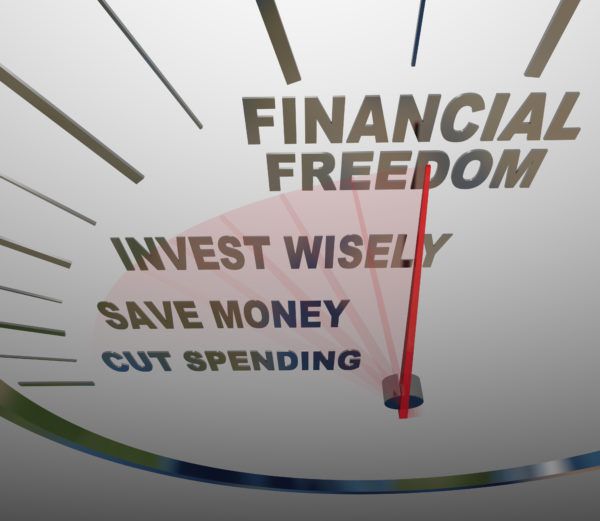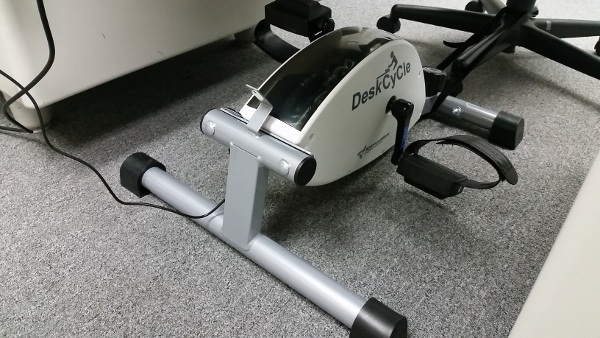Published by Jeremy. Last Updated on July 29, 2020.
Disclaimers: Our site uses demographic data, email opt-ins, display advertising, and affiliate links. Please check out our Terms and Conditions for more information. Listed prices and attraction details may have changed since our visit and initial publication.
I've been on a quest for digital independence for almost five years now, and only recently achieved my goal thanks in part to paying off my debts in a debt avalanche.
It all started when Angie and I were walking on a beach in Mauritius on our long-term trip that I said we should have a five year goal for digital independence.
The idea at the time was that we'd build up our websites to the point that we could sustain them as a full-time business. And while I was able to do that for myself in the time-frame, we're still on our way to working to that point for her.
Since that fateful conversation, the Financial Independence Retire Early (or FIRE) movement has taken off. Although it sounds like our story would be a case study for this philosophy, I really have to say the idea of it is, to put it bluntly, absurd.
FIRE and Digital Independence Are Not The Same Thing
At its core, the Financial Independence, Retire Early (FIRE) movement is a quest towards a lofty goal- reduce your debts, increase your income, save as much as possible, retire young, and live your best (if often quite frugal) life.
We'd all like that, right? It seems eerily similar to that conversation Angie and I had five years ago.
Sadly, too many people get caught up in the dream of early retirement in their twenties, thirties, and forties without having a clear understanding of what that means. “Retire” in this scenario is idealized as live the life you want, but in actuality it is often taken to mean work however you like, when you like- even if that part is often drastically understated.
Sound familiar? That's digital independence for you– where you create a business where you can work for yourself (online) and earn money when, where, and how you want.
The truth of the matter is that there are very few people in their twenties and thirties who have amassed enough wealth to do whatever they like and live off of interest alone (Do you know anyone with a $1,500,000 nest egg in order to live off a $60,000 annual income from the interest? I don't.).
But there are a ton who have reached digital independence with their own businesses to have similar freedoms.
Broadcasting otherwise is disingenuous at best as those achieved FIRE are, far and away, outliers from the pack (or perhaps grossly underestimating the money they'll need).
Even with our jobs in well-playing industries plus our blogging business (read: $200,000 annually+), and being frugal as much as possible, we still would not have been able to amass the kind of wealth that is required to achieve the ‘retire early' portion of FIRE.
In my opinion the fact that this is unattainable for most gives the Financial Independence Retire Early movement a bad name for itself and puts those dreamers on the wrong path from the start.
The Mythical Number for Financial Independence Retire Early
As we never like to sugarcoat things, we're going to tell you a simple fact. FIRE, at its core, requires two things to happen:
- You become (mostly) debt free, thus reducing your required monthly expenses significantly.
- You can, in fact, stop working and retire. (This being different from digital independence where you continue to work.)
What does it take to do that?
Well, if we use our situation as a case study, we would find that we spent just over $5,000 a month on living expenses at the start of our five year plan. $1,500 of that went for our mortgage, another $1,000 to student loans and car payments, and the rest went towards monthly expenses that we would not want or could not give up a lot of in any scenario (food, utilities, dining out, vacations, etc).
Step one of the FIRE movement was to achieve financial independence, and if elected to go all-in and reduce all of our debts we'd decrease our required spending by 50%.
In five years, we did not get that far.
We paid off our student loans and the bulk of our car payments (paying off over $50,000 in loans in 33 months), and thus reducing that $1,000 payment close to zero. However, we did nothing to reduce our monthly mortgage payment- but had we'd been interested in pursuing further we could have just as easily sold our house for something less expensive.
Book Your Trip Today
Flights | Hotels | Apartments | Rental Car | Cruises | Day Tours
Likewise, we probably could've knocked off another $500-$750 a month in frivolous expenses to put to savings as well, but if we're going to retire in our 30s we would want some comforts for the next 60 years so that money would've had to stay regardless.
Our $5,000 in monthly living expenses became $4,000. We were “debt free” (sans house), but we really only reduced our financial burden by 20%- and that was hustling for it fairly hard.
If we then look at what it would take to truly “retire early” in our scenario, we would need enough money in the bank to cover this $4,000 expense outright every month for the rest of our lives.
At a conservative estimate at 4% draw-down, we would need north of $1,750,000 invested to cover $4,000 after taxes per month for the rest of our lives- ignoring inflation, new expenses, and other life changes getting in the way. Had we some how paid off our mortgage as well, that number would drop to just north of $1,000,000.
This goes back to a harsh point we made earlier- very few 20 or 30 year-olds have a million dollars at their disposal, especially those that are rapidly paying off debts to achieve the “financial independence” portion of the FIRE movement.
In fact, even with our salaries to get to just $1,000,000 in the bank on our incomes, we would've had to save the following (at 5% interest):
- 10% of our gross income for 28 years.
- 25% of our gross income for 16 years.
- 50% of our gross income for 10 years.
Oh, and by the way, we also would've had to pay off $325,000 in debt over that time to pay off all of our debts to hit the financial independence portion as well (assuming we kept our current house).
So say we somehow managed to hit that mythical 50% of our gross income savings target in 10 years. To also pay down our debts we'd have to allocate another 16.5% of our income as well.
Now we're talking saving 66.5% of our gross income which no matter how you look at it is significantly more than what we'd bring home after taxes, and doesn't even factor in living expenses over that period of time as well. So our timeline would get pushed out even more from there.
How anyone thinks this is practical on those with salaries less than being in the top 1% (or maybe 0.1%), well, I have no idea. Even with cutting our mortgage, reducing our expenses, and saving as much as possible from the start, it would still take us well over 10 years to hit the goal- and we had high salaries to begin with!
The FIRE movement is simply not for those who aren't already top income earners to begin with, and those who think they require far less are treading into dangerous waters of running out of money over time. In our scenario above that was the bare minimum needed, and also included zero emergency padding what-so-ever.
To be honest, a more likely scenario here is even more bleak as inflation, new expenses, and life events are something everyone has to deal with as well!
What I'd Need to Truly Retire Early
My biggest contention with the entire FIRE movement is that people have it in their minds that they can live off of a paltry amount of money by paying off one-time expenses and having a nominal amount in the bank (in this case, nominal being several hundred thousand dollars).
Sadly, life has a way of ensuring it is not as easy as that and one-time expenses, inflation, lifestyle changes, and other bills really throw a wrench into the already flawed concept. It is because of this that I think people significantly underestimate what they really need.
For us to truly retire I believe we would need, in cash after tax, just over $2,750,000.
This is a number that is absurdly higher than most you'll ever hear in FIRE movement success stories (if only because, again, who in their 20s and 30s can actually save this much outside of those in the top 0.1%?).
I came up with this number based on a simple calculation:
- Our draw-down would start at $60,000 per year (2.2%) and increase at 3% per year due to inflation and added expenses.
- We can safely anticipate an interest rate on our principal of 4% per year.
As the draw-down would become greater than our 4% interest rate after a nominal period of time, we would likely hit zero after 60 years (and if you factor in paying off our mortgage about halfway through that and causing a decrease in our draw-down, potentially a fair bit longer).
If our expenses stayed fairly fixed beyond a 3% increase year-over-year, we would be able to have enough money to “retire” until we were in our mid-90s before getting close to zero. (And since we would not be working any longer at 32, we wouldn't anticipate relying much on Social Security when we get into our late 60s as well- admittedly we're not even planning on that being around at the rate things are going).
Out of all of the numbers mentioned so far, that end date is the only number that matters to us.
If inflation jumps several percent for a good chunk of those years, you run out of money well before your 90s. If your average interest drops to 2% for a stretch of time, you'd lose a significant chunk of your nest egg by 60 and may not catch-up. If your expenses increase any nominal amount, you'll run out of money.
The list goes on.
To me, this is the crux of the Financial Independence Retire Early movement as you are projecting a draw-down of your account for what could be 60+ years to make it all work; all while hoping you're still above zero at the end.
If you have to thread the needle that much to make your scenario work, are you really financially independent? If you can not do it comfortably, are you really truly retired?
The answer is no, and anyone who says otherwise is either incredibly rich or outright foolish. In either case, I can't say either are good case studies to listen to someone when it comes to financial advice. This is why I've avoided the concept altogether in my own planning.
Retire Early is Code for Working for Yourself
When it comes down to it, I really think the FIRE movement is a pipe dream- one that has come across with great branding for click bait articles that, at its best, is disingenuous.
At the end of the day very few people under 50 will come up with the kind of nest egg they need to truly “retire early.” Most instead work on building a viable business to help them supplement their savings for, hopefully, several decades to come.
This is where we sit, and since we do it online we call it digital independence.
My business brings in anywhere from $5,000 to $12,000 per month these days. If you look at it from an interest perspective, at 4% my business could be valued on par with having $1,500,000 to $3,600,000 in the stock market today (and that is ignoring future growth via the work I put in it). It isn't profits in the form of interest or dividends, but it is comparable in a way in terms of viewing my monthly income.
But here is the biggest difference between our scenario and those in the FIRE movement: I work my ass off for it.
My “FIRE movement” story is not amassing wealth to the point where I can hang out and do whatever I want for the next 30 years. Perhaps one day I'll truly get there, but it isn't today.
Yes, I can sleep in late, have a nap mid-day, and have a beer (or two) at lunch if I choose to. I can also choose not to work any given weekday, go to the gym whenever I please, and take as many vacation days as I'd like without harming my income too much.
But I also work 40-60 hour weeks to keep my business on the right path, and sometimes work 'til midnight and other days get up early and immediately rush to my computer to push hard for growth.
The truth of the matter is that for every one success story you read on the internet about someone achieving this absurd goal in the FIRE movement there are hundreds more out there doing the real thing that gets them to enjoy their definition of freedom- building a business to finance their dream lifestyle.
At the end of the day those 20 and 30 year-olds who have $1,000,000+ in the bank and live off the interest get the articles written about them. They are few and far between. But between you and me, I'd rather have that million in equivalent value in a business that grows even larger over time.
There is no way I would've been able to save that much in 10 years, but I damn well built it from scratch in that same amount of time.
Perhaps we should reconvene in 20 years and see who is doing better for themselves.
What are you doing to achieve your desired financial goals? Are you using the FIRE technique? Digital independence? Something else? Comment below to share!
Read More Lifestyle Design Articles
About Jeremy

About the Author: Jeremy is a full-time travel writer based in Pittsburgh and primary author of this site. He has been to 70+ countries on five continents and seeks out new food, adventure activities, and off-the-beaten-path experiences wherever he travels.








Most of these FIRE people seem to get bored quickly and start doing what we location independent business owners have been doing all along: starting an online business or a blog. So then they scrimped, saved, sacrificed, and had a less enjoyable life for 20+ years just so they could do the same thing they could have been doing all along without the painful frugality. If they had died of Covid or a car crash while living so frugally, it would have been all for nothing too. I’d rather live a rich life every month than put it all off and retire early.
100% agree with you there. I’m all in for short-term frugality if it is a means to reduce debt, but thinking of doing that on a long-term scale (read: decades) seems to be missing the point of enjoying life to me.
I appreciate your honest assessment of the FIRE movement. It is super appealing, who doesn’t want to stop working and do whatever they want whenever they want for the rest of their lives? But you’re right that the idea that anyone can do it with enough persistence and savings is not true. 25x a limited budget allows no room for unexpected life expenses, luxuries like a nice stay in a hotel or some beautiful wines, Etc. People who retire early without enough saved up end up in a different kind of oppressed lifestyle. If every one of those people writing books about how great and attainable FIRE was for them, I don’t know why they charge so much for their books, or plaster ads all over their sites and direct readers to advanced financial planning courses or whatever. I do know people who have retired in their thirties and forties with a sizeable nest egg through diligent investing and planning, but their incomes were all quite high and not a single one of them has a blog that details their personal finances and none of them peddle any kind of service to help others reach a financial target that is utterly impossible for the vast majority. And 4%, in my opinion, is quite a bit higher than a safe withdrawal rate for an early retiree with more than 30 or 35 years left in their expected lifespan.
Hey Jeremy,
Interesting article. I think you’re kinda arguing the same thing but creating your own name for it…
The FI in FIRE is for Financial independence meaning, not having to put up with working at a job you hate or have little to no control over but instead giving you the freedom to pursue other more meaningful ventures like volunteering or… running your own website on a subject that you LOVE!
It’s essentially replacing your active income (your job) with a passive one (stocks) to cover your living expenses (and having a cash buffer for emergencies/unknowns). Anything on top of that (ie: luxuries) can be paid for with new ventures that you’re passionate about (and don’t mind doing the same 40-60 hour work weeks/working your ass off).
I think the RE (Retire Early) part of FIRE is strongly misunderstood. It’s not retiring in the sense that you’re wasting your days taking naps and drinking beers. To be honest, I think the RE only exists cos it makes a nice acronym when partnered with FIRE.
For FIRE to work the idea is that you work on your savings rate (income minus expenses as a percentage)
A 66% savings rate is the same for anyone on a mid income vs a high income – it’s all relative.
Someone with a fancy, expensive lifestyle on a high wage will have the same savings rate as someone more frugal on a lower income.
Frugal lifestyle with high wage speeds up the process to reaching FIRE (or allows them to save more)
Expensive lifestyle on lower wage slows it down.
Another component the FIRE movement promotes is rejecting consumerism and only spending your money on things that mean something to you.
I’ll admit, in a lot of the materials I’ve been reading online about FIRE there is a lot more focus on what stocks to pick rather that what people are aiming to do once they reach FIRE (ie: their dream lifestyle).
For me it’s an interesting concept to replace an active income with a passive one for covering basic costs and freeing you up to pursue your passions and work your ass off doing it.
Hi Jeremy,
Great article, and very clearly argued.
I agree that the goal of creating digital independence is much more realistic and achievable that any million dollar FIRE retirement dream.
We too are working hard on our digital business (House Sitting Magazine), and have just passed that magical point where income each month is greater than our monthly expenses.
This means that the jobs have now gone – we used to teach English online to Chinese students – and we now have more time to input into the business to accelerate its growth.
Like you we are free to pick our own hours, but still put in around 40 to 60 hours a week each, sometimes more. But we know we are building for our future, and that makes it so much more rewarding than slogging away in a job to build somebody else’s business for them.
We keep our outgoings down by using house sitting as our accommodation option, so have no debt whatsoever – no mortgage, no loans, no utility bills at all.
We often talk about the three pillars of the life of global freedom we have created:
1) Zero debt by selling up and going totally nomadic
2) Zero accommodation cost (well, almost!) by offering our services as house and pet sitters
3) An online income that can be created from anywhere in the world, allowing us total location independence.
Digital independence is definitely worth working towards, and is achievable in a much shorter timescale than FIRE ever can be.
Best wishes,
Ian and Vanessa
Hi Ian and Vanessa- that is great to hear you are doing a similar approach to us (although admittedly I suspect your # is far lower than ours) and congrats on just hitting your income goal, it is such a great feeling!